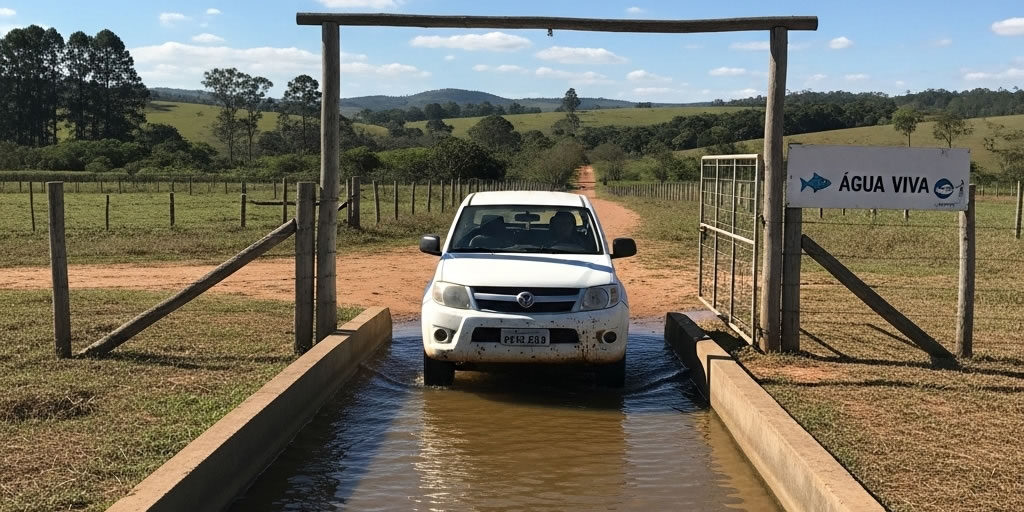- Software Gestor para Aquicultura
- (85) 2139-6730
- contato@despesca.com.br
HACCP (Hazard Analysis and Critical Control Points): Implementing a Food Safety System on Your Farm

Economic Feasibility Analysis: A Step-by-Step Guide to Planning a New Aquaculture Project or Expanding Your Farm
12/09/2025
Beyond Raw Product Sales: How to Add Value to Your Product and Conquer New Markets
16/09/2025The demand for safe and high-quality food is a growing consumer requirement and a fundamental condition for accessing more demanding markets, both in Brazil and abroad. For the aquaculture producer, implementing a Hazard Analysis and Critical Control Points (HACCP) system is not just a formality, but a strategic tool that adds value to the product, optimizes processes, and mitigates risks, ensuring business sustainability.
HACCP is a systematic and preventive approach, internationally recognized, that aims to identify, evaluate, and control hazards that can compromise food safety. Instead of relying solely on final product inspection, the system focuses on process control, from the reception of post-larvae or fingerlings to harvesting and dispatch.
The 7 Fundamental Principles of HACCP
The implementation of the system is based on seven essential principles that guide all stages of the production process. Understanding each of them is the first step to building a robust and effective plan.
- Conduct a Hazard Analysis: This involves identifying all potential biological (bacteria, viruses), chemical (drug residues, heavy metal contamination), and physical (metal fragments, plastic) hazards at each stage of production.
- Determine Critical Control Points (CCPs): A CCP is a step in the process where control can be applied and is essential to prevent, eliminate, or reduce a food safety hazard to an acceptable level. Examples in aquaculture include temperature control in feed storage or water quality monitoring.
- Establish Critical Limits: For each CCP, maximum or minimum limits must be defined that separate acceptable from unacceptable. For example, the maximum permissible concentration of a specific drug residue in fish.
- Establish Monitoring Procedures: A system must be established to monitor CCPs and ensure they remain within the defined critical limits. This involves regular measurements and accurate records.
- Establish Corrective Actions: If monitoring indicates that a CCP is out of its critical limit, predetermined corrective actions must be taken immediately to correct the deviation and prevent non-conforming products from reaching the consumer.
- Establish Verification Procedures: Verification confirms that the HACCP system is working as planned. It includes audits, record reviews, and calibration of monitoring equipment.
- Establish Record-Keeping and Documentation Procedures: Maintaining detailed records of all procedures, monitoring, corrective actions, and verifications is crucial. This documentation proves system compliance and is fundamental for traceability.
How Technology Facilitates HACCP Implementation
Manually managing an HACCP plan can be complex and prone to errors. Using a management software, such as Despesca, transforms this challenge into a competitive advantage. The platform allows centralization of all records for water parameter monitoring, feeding control, medication use, and sanitary management.
With Despesca, it is possible to create monitoring routines for each CCP, generate automatic alerts when critical limits are exceeded, and digitally record all corrective actions taken. This not only optimizes team time but also creates a robust and easily accessible database, essential for internal and external audits, in addition to facilitating complete lot traceability, from the pond to the consumer’s table.
Benefits Beyond Food Safety
Implementing an HACCP system, supported by efficient digital management, goes beyond complying with sanitary standards. It results in reduced losses, greater standardization of the final product, optimized use of inputs, and consequently, improved profitability. Furthermore, it strengthens the farm’s image in the market, opening doors to clients who demand quality and safety certifications, such as supermarket chains and the export market.
In summary, HACCP is an investment in the longevity and success of your production. By adopting this methodology with the support of modern management tools, the producer not only guarantees the safety of their food but also elevates the standard of their entire operation, making it more efficient, traceable, and competitive.




